Publications
Articles, publications, books, tools and multimedia features from the U.S. Institute of Peace provide the latest news, analysis, research findings, practitioner guides and reports, all related to the conflict zones and issues that are at the center of the Institute’s work to prevent and reduce violent conflict.
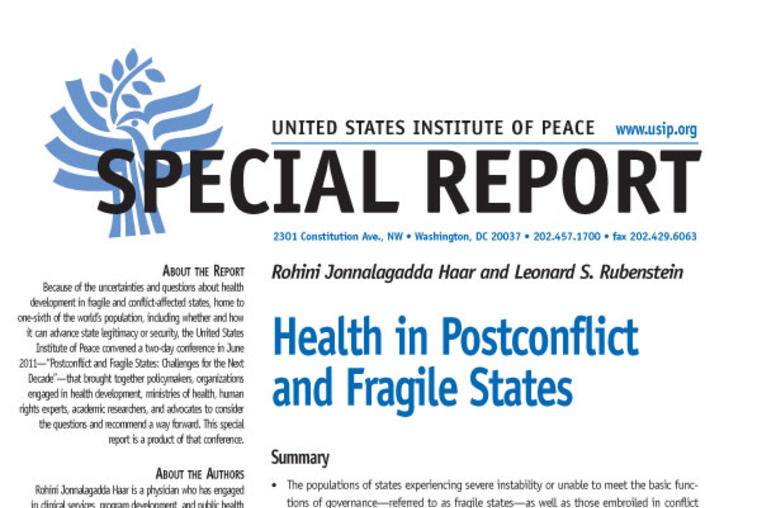
Health in Post-Conflict and Fragile States
Civilian health, health care workers, and health facilities disproportionately suffer in countries experiencing severe instability, but global health donors have yet to make developing health systems in such states a priority. Doing so could both make populations healthier and contribute to state legitimacy.
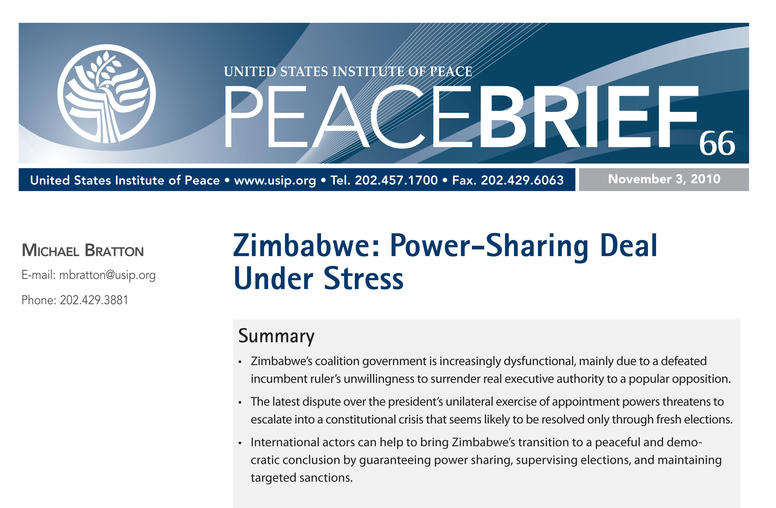
Zimbabwe: Power-Sharing Deal Under Stress
The fragile power-sharing deal between Zimbabwe’s political parties is close to breaking down. Michael Bratton, a Jennings Randolph senior fellow at the U.S. Institute of Peace, discusses the latest stalemate. This Peace Brief is based on press monitoring and interviews in Harare, Zimbabwe, Washington, D.C., and elsewhere between May and October 2010.
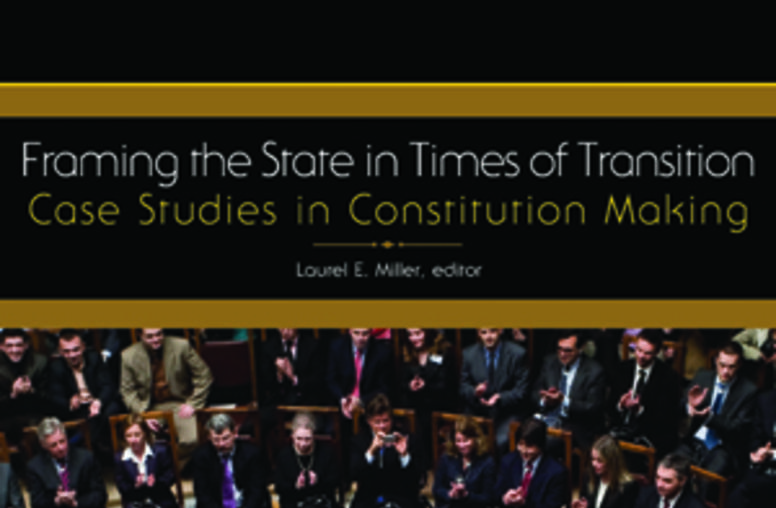
Framing the State in Times of Transition
Analyzing nineteen cases, Framing the State in Times of Transition offers the first in-depth, practical perspective on the implications of constitution-making procedure, and explores emerging international legal norms.
Managing Political Transitions in Africa
Political transitions have often served as triggers of violence. This initiative aims to increase the capacity of key stakeholders to identify these triggers during political transitions, to build positive relationships among civil society, policymakers, and regional and international organizations, and to contribute to the academic and policy literature on peaceful political transitions in Africa.
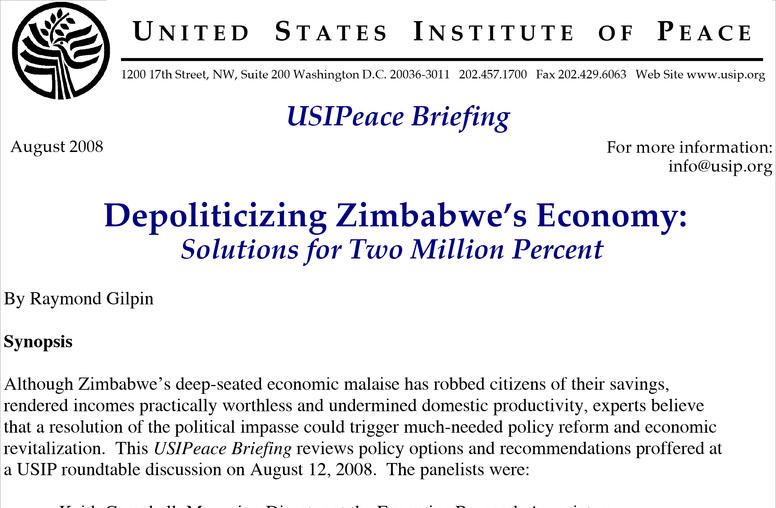
Depoliticizing Zimbabwe’s Economy: Solutions for Two Million Percent
Zimbabwe is saddled with two million percent annual price increases, rampant corruption and pervasive unemployment. Experts believe that an effort to reform the country's political corruption and irresponsible monetary policies will be central to establishing social and economic stability in the long run.
On the Issues: Zimbabwe
What are the national, regional and international consequences of recent electoral violence in Zimbabwe? What triggered the outbreak? Read more from Senior Research Associate Dorina Bekoe.
Zimbabwe’s Latest Crackdown: Responses and Consequences
The socio-economic and political conditions in Zimbabwe have been declining for years, but on March 11, 2007, they seemed to take a dramatic turn for the worse. Against these worsening conditions, USIP convened a public meeting to discuss the triggers leading to the March 2007 crackdown, the changes within the political parties in Zimbabwe, the challenges facing civil society organizations (CSOs), and the public’s response to past political violence.
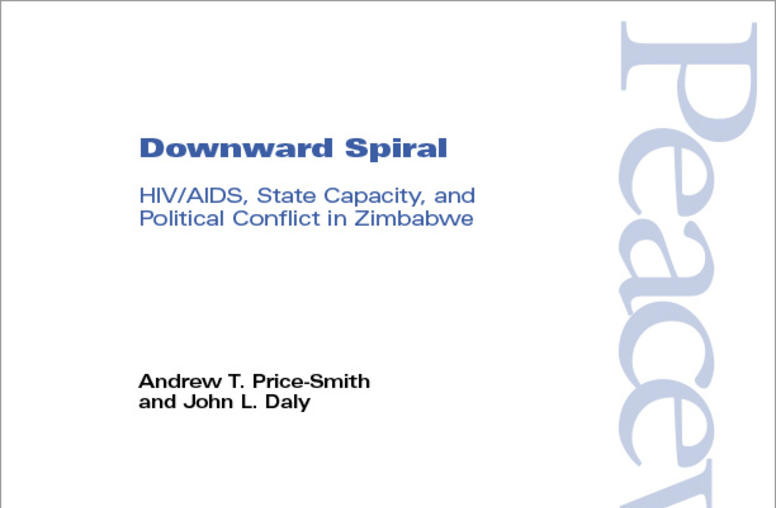
Downward Spiral: HIV/AIDS, State Capacity, and Political Conflict in Zimbabwe
In the post-Cold War era, diverse new threats to long-term global political and economic stability have emerged. Such threats include terrorist activities, the proliferation of nuclear technologies and delivery systems, and biological threats that include both bioweapons and naturally occurring epidemic diseases such as HIV/AIDS.
Zimbabwe Web Links
Below are links by topical categories to resources primarily in English providing information on Zimbabwe and specifically, the politics of torture in Zimbabwe and prospects for nonviolent political change. For related web links, see Trauma and Conflict, U.S. Human Rights Policy, Religion and Peacemaking, and Regional Resources: Africa. For more USIP resources see Zimbabwe. General Resources Government Agencies, International and Non-Governmental Orga...
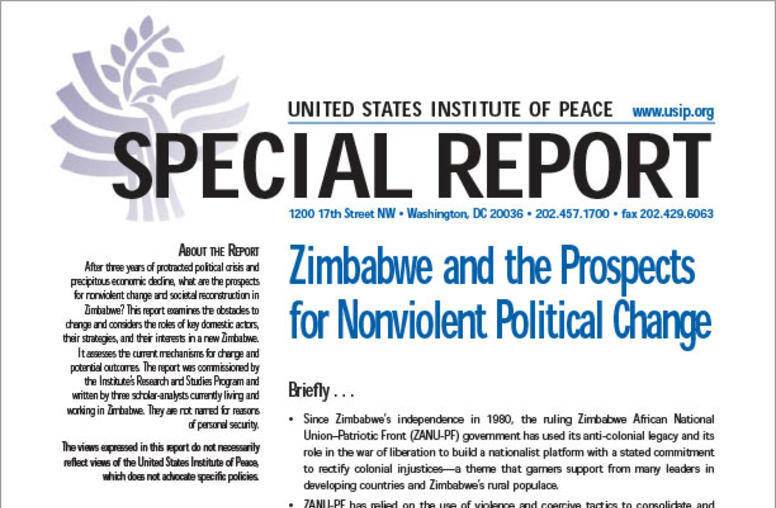
Zimbabwe and the Prospects for Nonviolent Political Change
This report examines the obstacles to change and considers the roles of key domestic actors, their strategies, and their interests in a new Zimbabwe. It assesses the current mechanisms for change and potential outcomes.